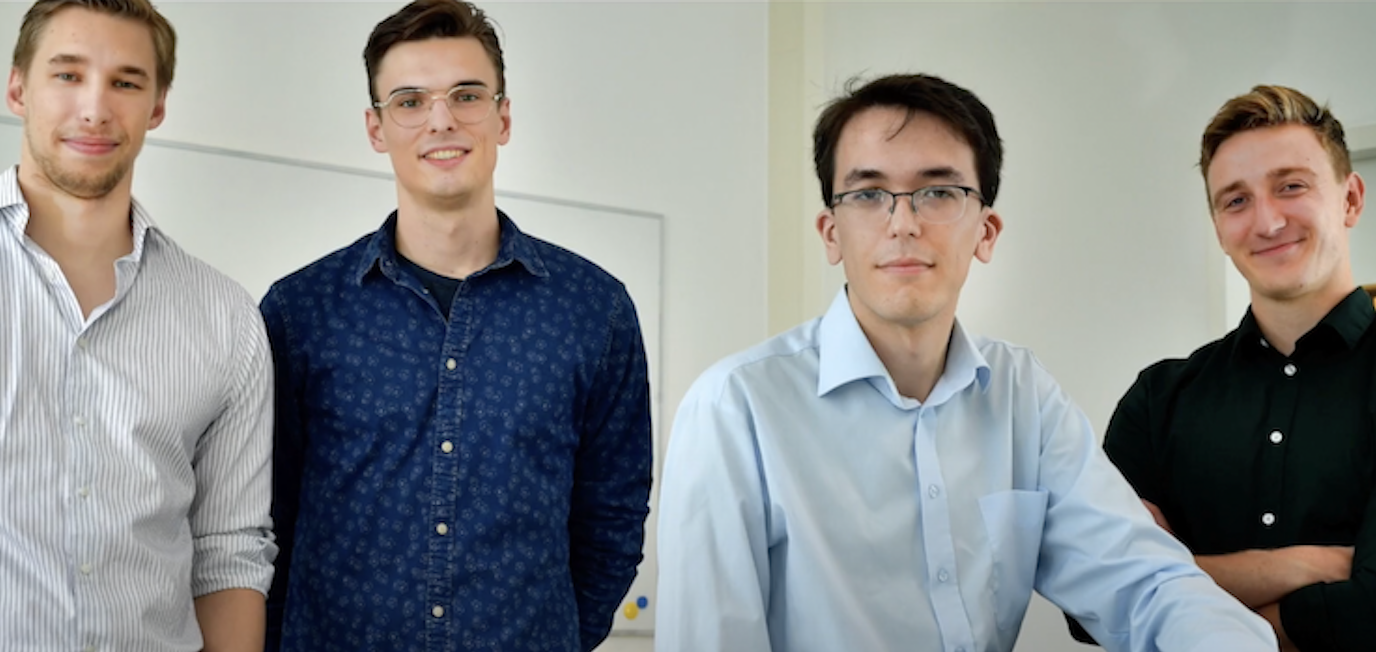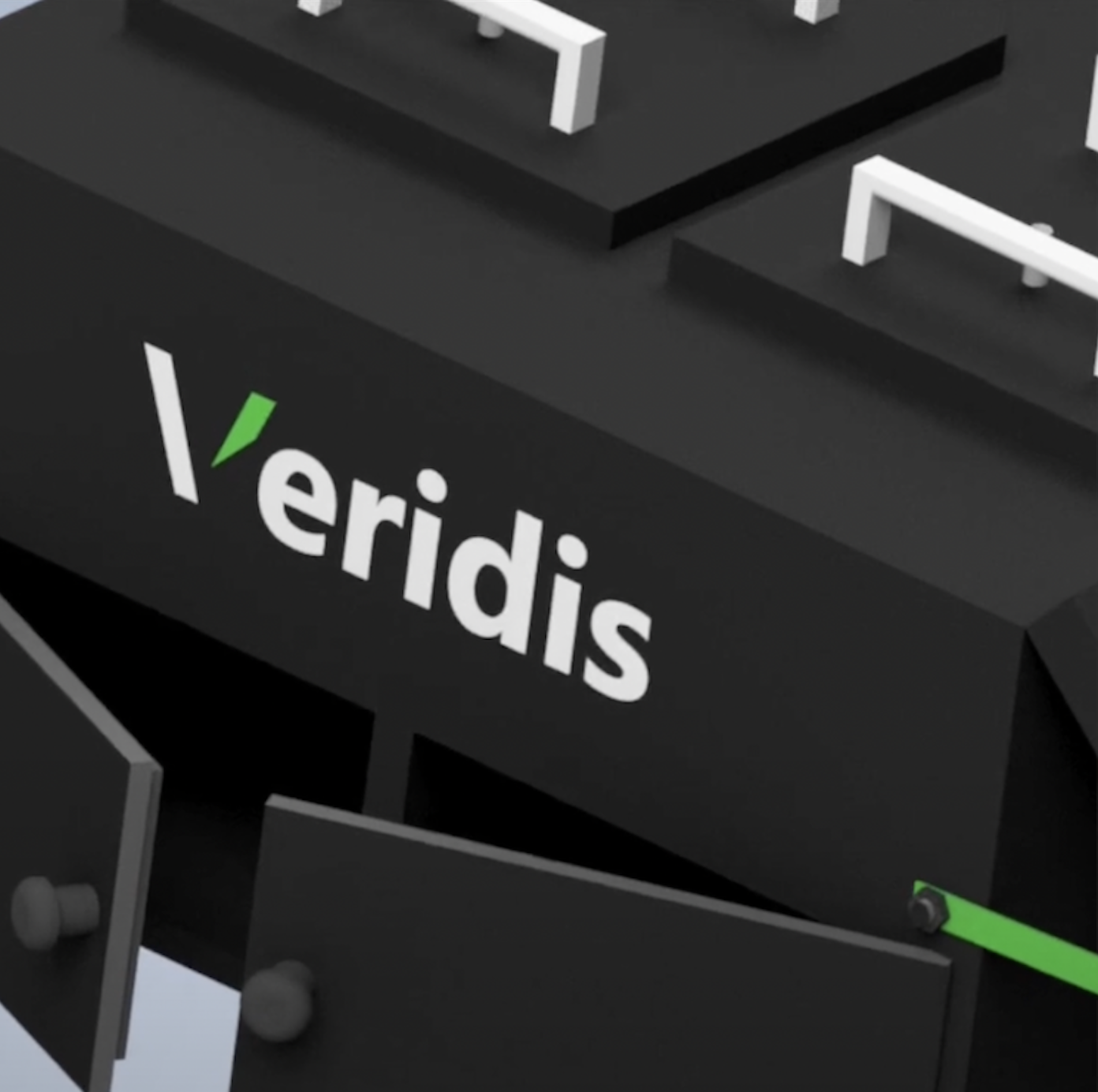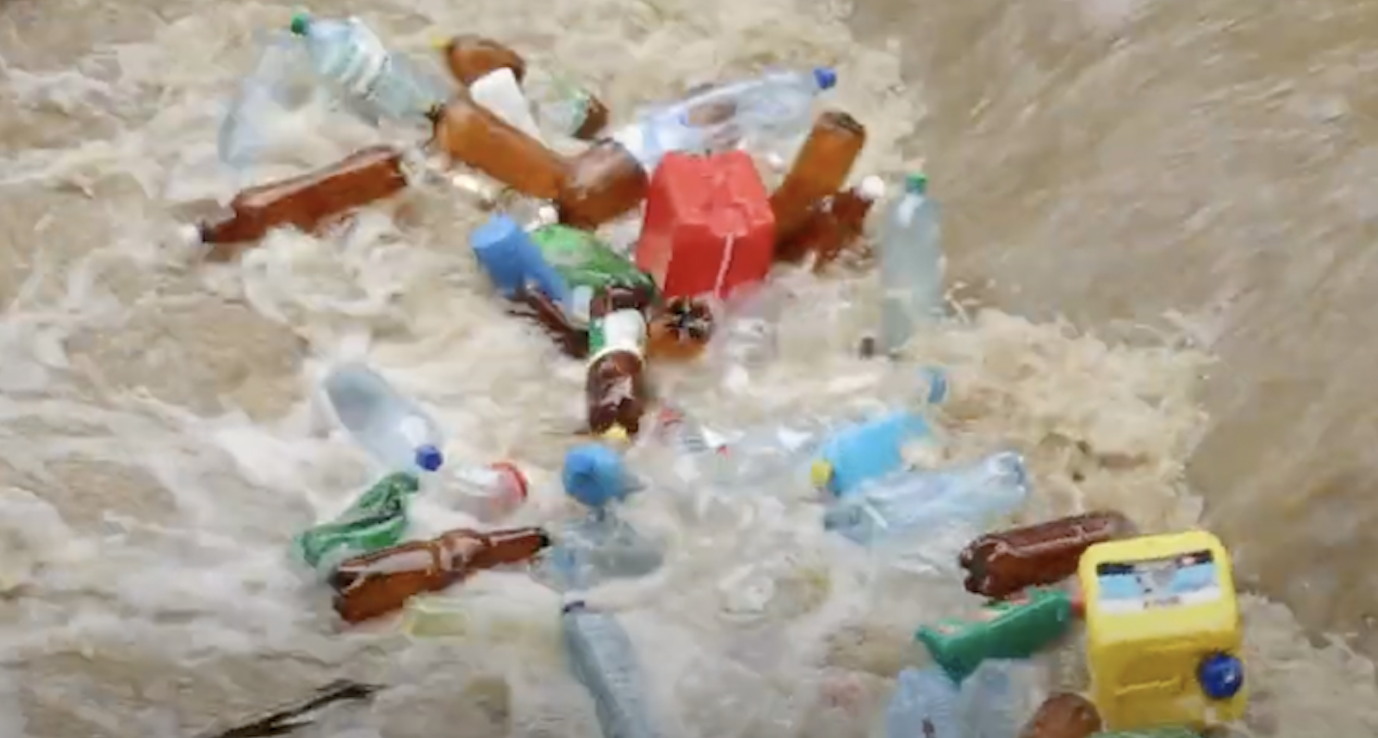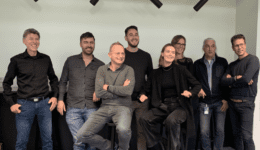Founded in 2020, Veridis is the rare team that came to HighTechXL as an existing startup after the pivot to deep-tech venture builder. The four-person team has developed complex thermal analysis technology that allows recyclers to more accurately assess the quality of plastic anywhere in their recycling process.
That’s important, because in a world of increasingly circular economies, high-quality recyclable plastic is a necessary and valuable commodity. Separating recyclable materials from waste is tricky. Veridis is, by their own account, pushing to refine their technology to meet client needs and expectations.
Those expectations are increasing as the world shifts from thinking of plastic waste as trash to seeing it as a new resource.
Veridis is dedicated to the United Nations Sustainable Development Goal 12: Responsible Consumption and Production with our core business aiming to increase and better plastic recycling.
While Eindhoven is better known as a semiconductor center, with ASML and NXP, joining HighTechXL made sense in that it integrates Veridis into the larger Brabant region, says CTO Jeroen Glansdorp. Yes, there are a lot of companies already in conventional waste management and recycling here. “But the big upside for us is also the technical expertise that’s in the area,” Glansdorp said.
Since they came to HighTechXL, the team – with an average age of about 25 – has done a deep dive into the recycling industry, researching, talking with prospective clients and concluding that applications for their technology go way beyond just plastics or polymers. “It’s about every material out there that companies can think of,” says CEO Nigel Visser.
Analysis is key to recycling, and scaling the process is the challenge. The existing waste analysis technology has limitations on sample sizes and accuracy, Visser says.
“We took that technology and developed our own new design and concept around it. And we made a technology that’s actually interesting to plastic recyclers.”
Veridis is very much a deep-tech startup requiring advanced engineering and applied-sciences skills.
Current recycling analysis uses mainly optics. Veridis’ system uses thermal analysis because materials have melting points which are unique. Based on thermal characteristics, Veridis not only identifies the material but also its purity. “We’re measuring two grams of material at the moment, which is already 1,000 times more than usually possible, but we want to go to 100,000 times,” said Floris Gerritsen, chief scientific officer. “So, there’s still a lot of work to be done.”
It’s crucial to the industry to know what exactly is in waste streams. Waste from food packaging, for example, can include different types of plastics, which have to be separated. Recyclers need to know how efficient that separation is and the makeup of the waste. Veridis can tell recyclers not only how much plastic is in a sample, but what kind of plastics are in it and at what ratio. That is much more valuable than existing thermal methods, which measure a small sampling even though recyclers are selling tons, or they have to use techniques that have low accuracy.
“We tried to solve that bottleneck in the industry, where you have more data and knowledge about your streams. This is going to increase your recycling and increase yields but also the quality,” Visser said.
“Our key question is, how do we scale up that sample from 120 milligrams to larger to half a kilogram, a factor of 100,000 times?”
Building a machine that can do that on-site will be the breakthrough. As of late 2022, the current system version in development is a demonstration unit, with a prototype scheduled to debut next year.
“Theoretically, it’s very easy as a scalable concept. But in real life, it’s not so easy to actually fabricate that,” Floris said. “I mean, for every module, every part of the machine, there are big challenges.”
The team – three physicists and a business guy – is figuring out how to scale while bootstrapping the startup through client work.
“What we currently do is testing and analysis, but it’s on a project basis, as we are a founding team of four,” said Wessel van der Woude, chief business officer. “It’s actually very valuable, and (clients) pay if we do it on a project basis.”
Getting that first client to pay for analysis was such a big win the team took the check and the analysis, framed it and hung it on the wall of their office.
While one-off projects are not scalable, Veridis is using that experience and capital to develop analytical technology applicable to the entire plastic recycling industry. “And then through various adaptations, we can actually make it scalable for a lot of new industries we have yet to discover,” van der Woude said. “So, we want to go from something that still needs development and operating on a project basis towards one scalable machine for every new industry we discover.”
The client paid because plastic is complicated, making analysis a significant part of Veridis’ business. “We focus on polymers and plastic recycling. And these polymers are extremely hard to understand and sometimes identify because of the complex behavior,” said Floris Gerritsen, chief scientific officer.
“Our whole company is not just building a machine but also providing insights into the material,” Gerritsen said.
To do that, Veridis needs serious talent and has 13 positions open as of September 2022. The key characteristic they’re looking for in team members is dedication to a renewable future.
“I like to say we’re not the average startup,” Visser said. “What sets us apart is we’re really, really mission driven. And we select people based on that.”
Once they have a larger team, they can start focusing on larger markets, with Germany and Spain the next stops. In fact, Veridis already does testing for Spanish and German companies. Plastic isn’t just a Dutch problem, it’s a global problem, Visser says. He adds that’s increasingly the case, as China and some African countries have stopped taking plastic waste shipments from Europe.
Visser and crew might be starting local, but their future plans cross continents and industries, with the technology applicable in many sectors:
“We’re not going to just do plastics. We’re going to do as many materials as possible and develop complementary technologies to create as big of an impact as we possibly can.”



